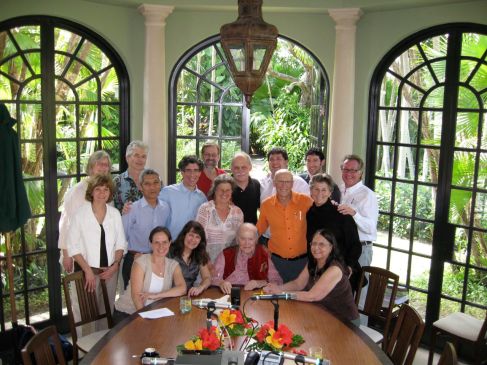His Holiness The Dalai Lama is Coming to MIT – Oct. 14-16th
The Dalai Lama Center for Ethics is sponsoring an event with His Holiness to confront important issues of contemporary society. Check out the link [Link] or [Link]
Some videos related to the talks can be found Here [Link]
Event Details:
Beyond Religion, Ethics, Values and Well-being | October 14, 1:30pm
A Talk by His Holiness the Dalai Lama with response by Br. David Steindl-Rast and Fr. Thomas Keating. A unique, precious chance to be in the presence of these three wise elders.
Global Systems 2.0 | October 15, Panel I, 9:30-11:30am; Panel II, 1:30-3:30pm
This day-long forum is a continuation of The Center’s 2009 inaugural series of conversations with the aim of sparking ideas to address the complex challenges in industry, academia, government, and the world at large through systems thinking and innovation. Global Systems thinking provides practical information from multiple disciplines.
Stages of Meditation: Buddhism for the 21st Century | October 16, 9:30am
A Teaching by His Holiness the Dalai Lama, hosted by Prajnopaya at MIT.
Based on Kamalashila’s essential 8th century meditation text, the teaching offers an in-depth introduction to contemplative practice and its contemporary relevance in day-to-day life.
Contemplative Practices and Mental Training: Prospects for American Education
The Mind and Life Education Research Group met regularly for 4 years (2007-2011) to create a research agenda for contemplative education. A scholarly white paper manifested as a result drawing on research in neuroscience, cognitive science, developmental psychology, and education, as well as scholarship from contemplative traditions concerning the cultivation of positive development, to highlight a set of mental skills and socioemotional dispositions that are central to the aims of education in the 21st century. These include self-regulatory skills associated with emotion and attention, self-representations, and prosocial dispositions such as empathy and compassion. It should be possible to strengthen these positive qualities and dispositions through systematic contemplative practices, which induce plastic changes in brain function and structure, supporting prosocial behavior and academic success in young people. These putative beneficial consequences call for focused programmatic research to better characterize which forms and frequencies of practice are most effective for which types of children and adolescents. Results from such research may help refine training programs to maximize their effectiveness at different ages and to document the changes in neural function and structure that might be induced.
The paper can be found Here [Link]
my personal copy [MLERN_2012]


